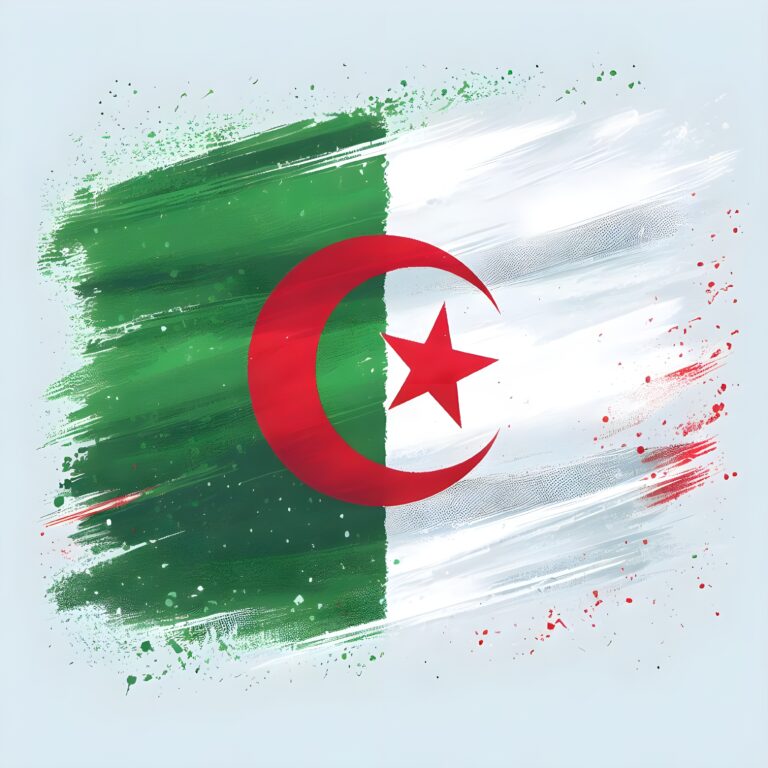Introduction: What Is the Specialised Commercial Court and Where Is It Located?
In 2023, the Algerian Ministry of Justice launched a major reform of the judicial system with the creation of the Specialised Commercial Court. This reform, rooted in Law No. 22-13 of 12 July 2022, aims to modernise the handling of commercial disputes and strengthen legal security for both Algerian and international businesses.
The Specialised Commercial Court is a dedicated jurisdiction focusing exclusively on commercial, financial, and business-related cases. Its mission is to ensure that disputes involving traders, companies, banks, and international contracts are settled more efficiently and professionally than under the ordinary civil courts.
Twelve (12) Specialised Commercial Courts were established across Algeria, located in the following cities:
Algiers, Oran, Constantine, Annaba, Sétif, Blida, Tlemcen, Béchar, Mostaganem, Djelfa, Ouargla, and Tamanrasset.
Each court has territorial jurisdiction covering several wilayas (provinces), ensuring that every major region of Algeria has access to a specialised judicial mechanism for business disputes.
These courts are composed of professional judges assisted by experienced commercial assessors drawn from the private sector. Together, they bring both legal and practical commercial expertise to the adjudication of cases.
Their overall objectives are:
- To accelerate the resolution of commercial disputes,
- To encourage reconciliation and settlement before litigation,
- To improve the predictability of judgments, and
- To enhance Algeria’s attractiveness to foreign investors and exporters.
Why the Specialised Commercial Court Matters for Debt Collection
1. Faster and more specialised justice for commercial disputes
Before this reform, commercial claims were processed by general civil courts, often facing delays and lack of commercial expertise. The new Specialised Commercial Court is dedicated exclusively to business and trade disputes, including payment defaults, insolvency, banking operations, transport claims, and international contracts.
This targeted jurisdiction means judges and their appointed assessors can focus on commercial law and practice, ensuring faster, more consistent, and business-oriented decisions — a key advantage for foreign creditors.
2. Mandatory reconciliation: efficiency before litigation
Under the new system, a creditor cannot directly sue a debtor without first going through a judicial reconciliation phase before the president of the Specialised Commercial Court.
If reconciliation is successful, the judge issues a conciliation report that carries the force of an enforceable title, allowing the creditor to demand payment either voluntarily from the debtor or, if necessary, compulsorily through a bailiff.
This innovation transforms the way commercial disputes are resolved in Algeria:
- Creditors obtain legally binding settlements much faster.
- Disputes are resolved under judicial supervision, ensuring fairness.
- Both sides can preserve their commercial relationship while settling the debt.
For exporters, it means rapid collection without prolonged litigation.
3. Lower cost and risk exposure
Reconciliation is a short, structured process limited to a maximum of three months. By avoiding a full trial, creditors save significant costs, and even when reconciliation fails, the preparatory stage often narrows the dispute, reducing future legal fees.
4. Transparency and accountability from debtors
Debtors must appear before the judge and produce evidence. This early judicial scrutiny prevents bad-faith delay tactics and provides creditors with a realistic view of the debtor’s financial position. It enhances predictability and enables early decision-making about whether to pursue settlement or escalation.
5. Protecting business relationships
The reconciliation setting promotes constructive dialogue rather than confrontation. Exporters may offer phased repayment plans or guarantees while maintaining long-term commercial relations. This makes the Specialised Commercial Court not only a legal mechanism but also a business-friendly conflict-resolution forum.
6. Strengthening Algeria’s legal and investment climate
The reform is part of Algeria’s strategy to modernise its judicial system and reassure investors. By providing a clear, specialised jurisdiction with enforceable and time-bound procedures, Algeria is signalling its commitment to a reliable and secure environment for international trade.
How Algeria Collection Services EURL Assists Exporters Before and After Reconciliation
Algeria Collection Services EURL is a trusted local partner for foreign exporters facing unpaid debts in Algeria. Our role extends well beyond administration — we provide end-to-end representation before the Specialised Commercial Court, combining legal insight with negotiation expertise.
A. Preparation and pre-hearing strategy
- We conduct a full review of contracts, invoices, shipping and banking documents, and prior correspondence.
- We build a concise and persuasive reconciliation file, outlining the claim, calculation of interest, and payment proposal.
- We identify the competent Specialised Commercial Court and manage all procedural filings and notifications.
B. Representation at the reconciliation hearing
- Our experts represent the exporter directly before the judge, in the presence of the debtor.
- Using our experience in commercial negotiation and litigation, we seek practical and enforceable agreements that protect the creditor’s financial interests.
- When an agreement is reached, we ensure the conciliation report is formally recorded and signed, giving it the status of an enforceable title.
- If reconciliation fails, we promptly secure the official report of non-conciliation, preserving the exporter’s right to file a lawsuit.
C. Monitoring and enforcement of the settlement
- When reconciliation succeeds, Algeria Collection Services EURL monitors the debtor’s compliance with the agreed schedule.
- In the event of default, we immediately initiate bailiff enforcement measures — such as account seizures, asset attachments, or payment orders — until full collection is achieved.
- We maintain continuous communication with the creditor throughout enforcement to ensure transparency and traceability.
D. Escalation when reconciliation fails
- If the debtor refuses settlement, we handle the full litigation process before the Specialised Commercial Court, ensuring that the PV of non-conciliation is attached as required by law.
- We also pursue interim or precautionary measures (asset freezing, protective seizure) to safeguard the creditor’s position during proceedings.
A Transformative Step for Exporters and the Algerian Economy
The creation of the Specialised Commercial Court represents a profound evolution in Algeria’s judicial landscape. It reinforces the rule of law in commerce, enhances the country’s attractiveness to investors, and provides a pragmatic path to resolve debt disputes efficiently.
For exporters, this means faster recoveries, lower costs, and stronger legal certainty.
For those working with Algeria Collection Services EURL, it also means having a partner capable of navigating every stage — from conciliation before the judge to the enforcement of agreements — with professionalism, precision, and results.
Sources and Legal References
- Law No. 22-13 of 12 July 2022, amending the Code of Civil and Administrative Procedure (Articles 536 bis 2–7)
- Executive Decree No. 23-53 of 14 January 2023, establishing the jurisdiction of the Specialised Commercial Court
- Executive Decree No. 23-52 of 14 January 2023, on the appointment and training of assessors
- Official communications from the Algerian Ministry of Justice (2023–2024)




